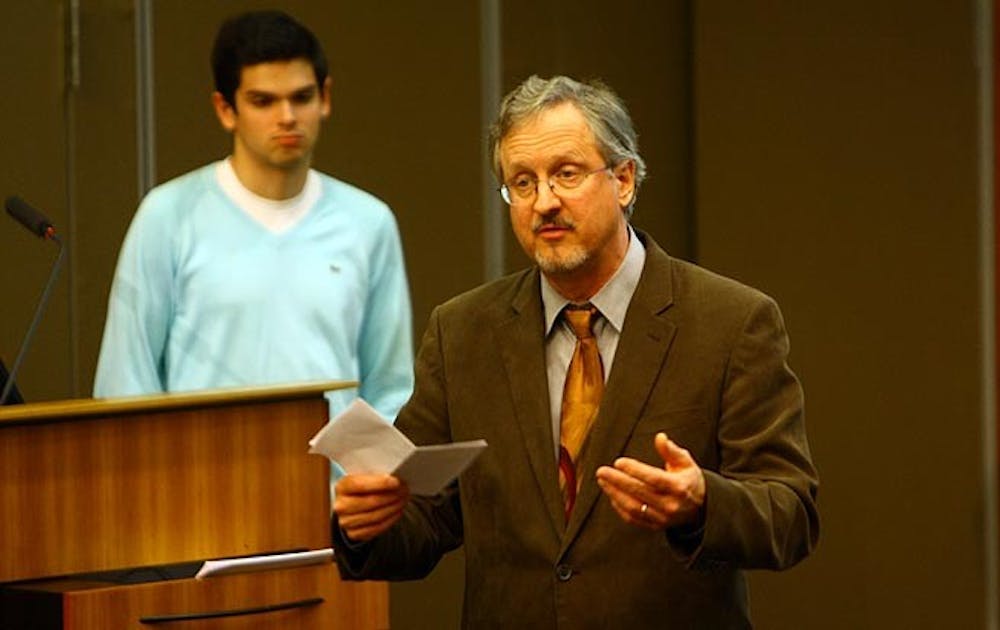Steve Nowicki, dean and vice provost of undergraduate education, outlined the University’s vision for nontraditional learning to members of the Duke Student Government Wednesday.
Nowicki noted current and upcoming endeavors to revolutionize teaching methods on campus. He also emphasized the need to increase transparency and communication between administration and students in discussions concerning the house model, innovations in teaching and the Duke Forward capital campaign. There is a major academic initiative currently in the works, a proposal that would restructure how the University views the curriculum, Nowicki said. Although he was unable to specify what the initiative was, he said more details would be presented in the next month.
“[The] mission here is to increase transparency and connectivity between the administration and the student,” Nowicki said.
The student feedback for DukeImmerse, a semester-long four-course program that unifies classroom learning and global education, has been overwhelmingly positive thus far, he added. The innovative program, he said, is unique in its capability to be “a fundamentally different” way of being a college student.
The program underwent its pilot semester in the Spring, with its two programs—“Black Freedom Struggles in the 20th Century: A Comparison of the Civil Rights Movement in the United States and the Anti-Apartheid Struggle in South Africa,” spearheaded by William Chafe, Alice Mary Baldwin professor of history and “Uprooted/Rerouted,” with Suzanne Shanahan, acting director of the Kenan Institute for Ethics and professor of sociology.
Nowicki added that although both DukeImmerse and DukeEngage are mainly focused abroad, students should not view the experience as one with only a global component. He noted that he hopes the number of students in the domestic Duke Engage programs will increase, thereby creating a greater balance between those abroad and those who stay in the country.
“We want to make sure that the international component is not just a boondoggle,” Nowicki said. “If programs have a pedagogically sound reason to go somewhere else, so be it. But we can’t forget that Duke is in North Carolina.”
Bringing the discussion back to Durham, Nowicki added that Duke should focus its efforts in ensuring that the new house model is implemented to promote community and stability.
“We should use this sense of community to better connect students with each other and faculty,” he said.
Student input, he said, can also be channeled into the University’s discussion on fiscal policy. He cited the Duke Forward capital campaign as an example where students can offer their insight.
In addition, Nowicki noted the significance of the West Union Building renovations and the creation of a much-needed student gathering space.
In other business
Senior Amanda Peralta, chair of the Intellectual Climate Committee, emphasized the need to continue the discussion on the committee’s recent survey and report. The report, released in September, investigates the intellectual engagement present in undergraduate campus culture.
“We want to broaden the horizons of how we view success beyond GPA and careers,” Peralta said.
Six DSG representatives were elected to a committee that will select the Young Trustee Nominating Committee. Before being put to a Senate vote, the representatives specified their platform and qualifications for the upcoming Young Trustee elections.
The committee’s members include freshmen Kimberly Farmer, Jose Sandoval, Shane Neibart, Alex Semien and Rosie Williams and sophomore Yue Dai.
Get The Chronicle straight to your inbox
Signup for our weekly newsletter. Cancel at any time.

